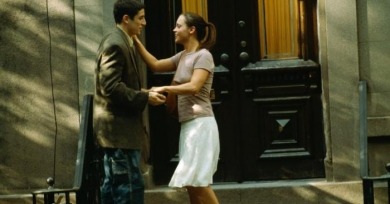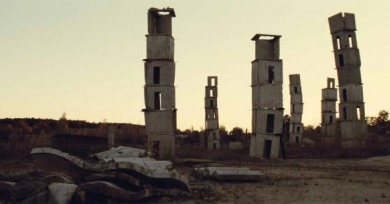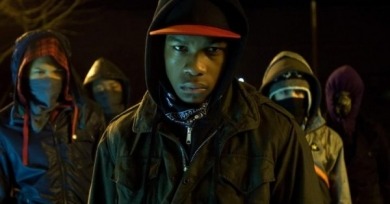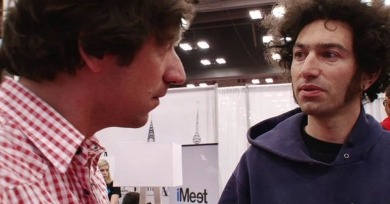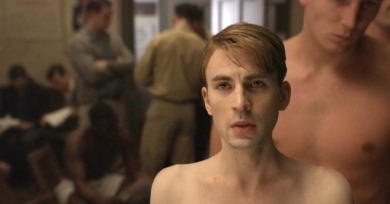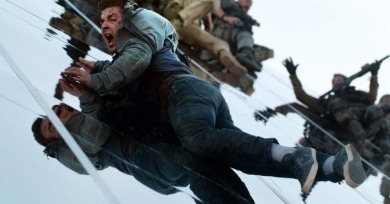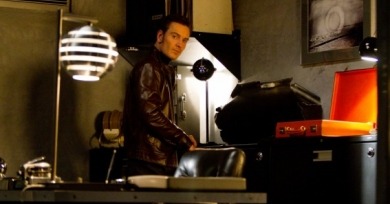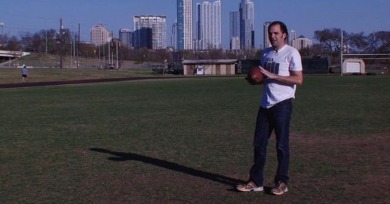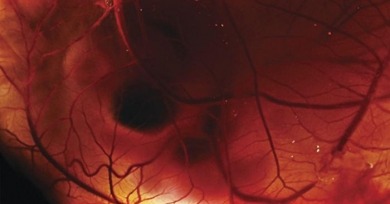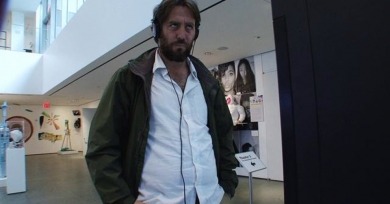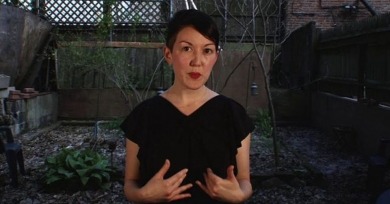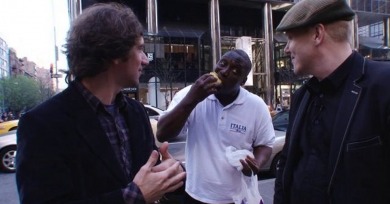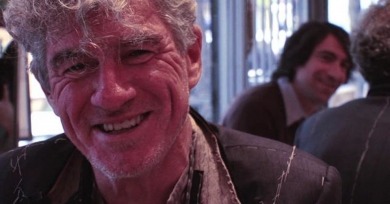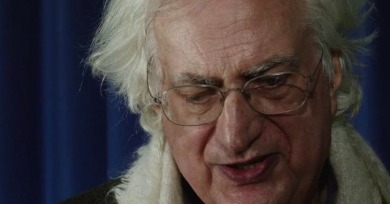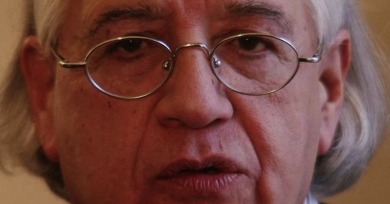Jeff Reichert
Anything Else has been labeled by some as an attempt on Allen’s part to bring his artistry to a more youthful market, but I wouldn’t give him that much credit for business savvy, or interest in much of anything that’s happened past the 1950s.
"I approached this as a landscape film, with the challenge of rendering the Kiefer landscape into a film document. My approach is choreographic, in that I am interested in the representation of space in film."
Cornish's achievement is to craft a whip-crack B-movie entertainment that's built for speed—everything in this alien-invasion thriller happens before you expect it to—but that also gets pretty good sociopolitical mileage to the gallon.
Air hockey enemies Azazel Jacobs (Terri) and host Eric Hynes stroll the floor of the Austin Convention Center to talk about coolness, the Clash, and pursuing the unexpected.
Director Joe Johnston dusts off some of the mise-en-scène from his earlier foray into retro-futurist tinged action, 1991’s The Rocketeer. The Captain America costume has a particularly nice tangibility to it.
Orphans and primitives both, Bay and Nim approach their respective means of communication—cinema and signing—awkwardly, and from a removal; their resulting control over their languages often suggests clever mimicry instead of true language.
Check out Reverse Shot's inaugural foray into video film criticism and the failure of video film criticism. We look at Taxi Driver, Hannah and Her Sisters, and their varying visions of New York.
Fassbender tries all the way through, even when donning that ridiculous metal helmet. Perhaps he’ll prove to be the straight male version of Joan Crawford, giving his all whether doing Mildred Pierce or Trog. If only First Class was Trog-level bad.
First-time filmmaker Kyle Smith and host Eric Hynes flee the madness of SXSW 2011 for the quieter comforts of the gridiron. Watch as they talk Bazin, Altman, and Turkey Bowl, Smith's terrific, unique debut feature.
We looked at these “matched-set” essays as exploratory exercises, not excuses for “they don't make ’em like they used to” screeds or, on the other side, reassertions that independence equals truth and Hollywood is inherently artificial.
Though separated by over a century of cinema, L'arrivée d'un train en gare de La Ciotat and The Tree of Life share a fundamental sense of wonder: at the image, at the world, at the fact that we are able to capture pieces of its beauty in images.
Both films are structured around quest narratives, and employ this teleology as a mechanism for plumbing regional specificities and eccentricities—Granik and Pearce use their stories as vehicles for ethnography.
Wandering the solitary environs of New York’s Museum of Modern Art, Argentine director Mariano Llinás (Historias Extraordinarias) defends the art of voiceover narration and explains his Borgesian theories of “unlimited” fiction to Reverse Shot’s Damon Smith.
Taking the film/music connection to the next level, rapper-turned-actor Ice-T drops rhyme on Reverse Shot at the 2011 Tribeca Film Festival.
Tribeca Film Festival award winner Alma Har'el (Bombay Beach) tells a skeptical Eric Hynes about the joys of owning a small dog during a stroll in Central Park.
Host Eric Hynes talks to filmmaker Clio Barnard about the slippage between reality and representation in her new documentary-fiction hybrid The Arbor, which utilizes an evocative lip-synch technique to explore the gritty legacy of celebrated British playwright Andrea Dunbar.
Host Eric Hynes takes an adventurous stroll through midtown Manhattan with Jón Gnarr, mayor of Reykjavik and subject of the new documentary Gnarr, who discusses his love of The Wire after watching an unidentified man devour an enchilada.
Host Eric Hynes chats with celebrity cinematographer Christopher Doyle (In the Mood for Love) about the "dance" between camera and subject in a mirrored hair salon during the 2011 Tribeca Film Festival, where Doyle was attending the premiere of his "pink" film Underwater Love.
Reverse Shot trashes a hotel room with French director Bertrand Tavernier (La Princesse de Montpensier, Round Midnight), then chats with him about historical accuracy, creative urgency, and film criticism.
Legendary documentary filmmaker Patricio Guzmán (Nostalgia for the Light, The Battle of Chile) discusses memory, the poetic qualities of cinema, and why slow pacing returns us to the rhythm of life.
